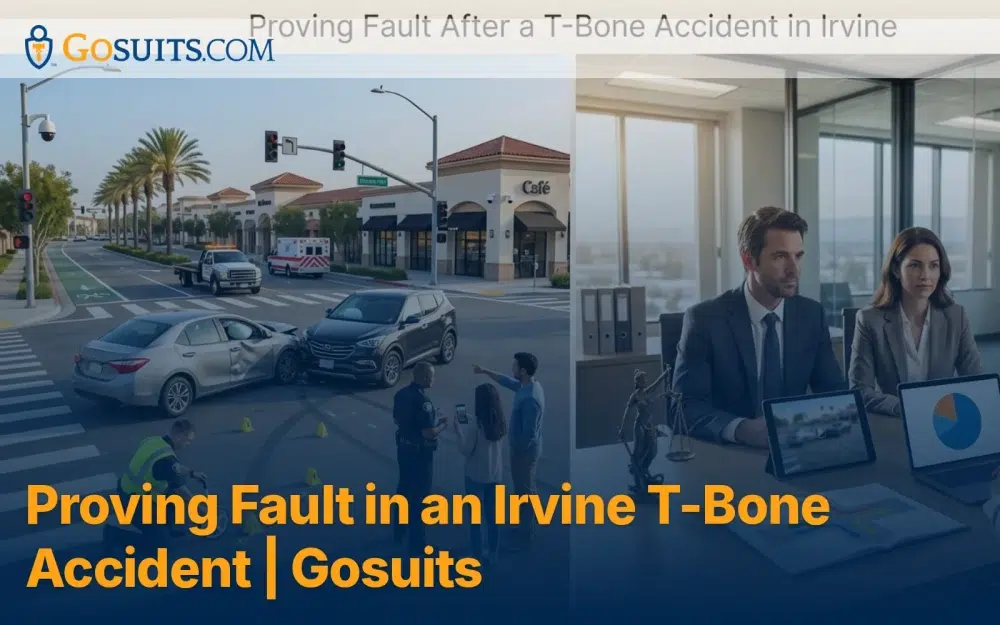Most personal injury settlements in Los Angeles are **not taxable** if they cover physical injuries, medical expenses, or pain and suffering. However, **you may owe taxes** on parts of your settlement related to lost wages, punitive damages, interest, or emotional distress unrelated to a physical injury. Understanding how your settlement is broken down can help you avoid IRS issues and keep more of your compensation.
If you’ve recently received or are expecting a personal injury settlement in Los Angeles, you may be wondering: “Will I have to pay taxes on this money?” This is a critical question because misreporting could lead to unintended tax consequences and impact your overall compensation.
The good news is that most personal injury settlements in California are not taxable, but there are important exceptions. Whether your settlement stems from a car accident, slip and fall, or other injury caused by someone else’s negligence, it’s crucial to understand how the IRS and California tax laws treat different types of compensation.
This article will help you break down the components of your settlement and clarify what’s taxable vs. non-taxable in Los Angeles, California.
Understanding the Nature of a Personal Injury Settlement
Personal injury settlements typically aim to compensate victims for economic and non-economic damages due to someone else’s negligence. These settlements often include:
- Medical expenses
- Lost wages
- Property damage
- Pain and suffering
- Emotional distress
- Loss of enjoyment of life
- Punitive damages (in rare cases)
Each of these components is treated differently under IRS guidelines and California tax law.
General Tax Rule: Most Personal Injury Settlements Are Not Taxable
According to the Internal Revenue Code Section 104(a)(2), the IRS excludes from gross income any damages received due to personal physical injuries or physical sickness, whether through settlement or judgment.
This means:
If you received a settlement for physical injuries in Los Angeles including pain and suffering or emotional distress stemming from those injuries you generally do not owe federal or California state taxes on that amount.
However, this exclusion does not cover every type of damage awarded. Depending on how the settlement is structured and what it includes, portions of it may be taxable.
This general rule defines how the IRS treats injury settlements in California, particularly when distinguishing between physical injuries and non-physical damages like emotional distress or punitive awards.
Key Factors That Determine Taxability
The following factors determine whether your personal injury settlement in Los Angeles is taxable:
- Was there a physical injury involved?
- Is the compensation for medical expenses, lost income, or punitive damages?
- Was the emotional distress caused by a physical injury or not?
- Was interest added to your settlement?
Let’s break these down.
Non-Taxable Portions of a Personal Injury Settlement
1. Medical Expenses (Related to Physical Injury)
Any compensation for medical bills associated with a physical injury or illness is not taxable, whether reimbursing past expenses or covering future care.
However, if you previously claimed these medical expenses as deductions on your tax return, you may need to repay the tax benefit received from those deductions.
2. Pain and Suffering (from Physical Injury)
Compensation for pain and suffering resulting from a physical injury is generally not taxable. For example, if you suffered a back injury in a car accident and were awarded damages for your chronic pain, that portion of the award is tax-exempt.
3. Emotional Distress (from Physical Injury)
If emotional distress stems directly from a physical injury such as PTSD after a traumatic accident the compensation is not taxable. However, documentation from your doctor or therapist may be needed if the IRS ever audits your return.
4. Loss of Consortium, Enjoyment, or Quality of Life
These types of non-economic damages are generally non-taxable if they are connected to a physical injury.

Taxable Portions of a Personal Injury Settlement
While most personal injury settlements are not taxed, some parts can be taxable, especially if they fall outside the scope of direct compensation for physical injuries.
1. Lost Wages
Any part of your settlement meant to replace lost income is subject to federal and California income tax. That’s because if you were working, that income would have been taxed normally and the IRS treats compensation for lost income the same way.
Note: This portion is also subject to Social Security and Medicare (FICA) taxes if the defendant was your employer.
2. Emotional Distress (Not from Physical Injury)
If your claim is only for emotional distress or mental anguish and does not involve a physical injury, the IRS may tax it. For instance, if you were wrongfully terminated and experienced anxiety, but no physical injury occurred, this compensation may be taxable.
Additionally, you must report any medical expenses related to treating emotional distress (e.g., therapy) as taxable income unless they were deducted separately.
3. Punitive Damages
Punitive damages which are awarded to punish the defendant for egregious conduct are always taxable, even if they arise from a physical injury case. This applies under both federal and California law.
If your settlement includes punitive damages, your attorney will likely list them as a separate line item to clarify their tax status.
4. Interest on the Settlement
Sometimes, a court or settlement may award interest if your case was delayed. This accrued interest is taxable as regular income.
Example: If your $200,000 settlement included $10,000 in interest due to delayed payment, the $10,000 must be reported as taxable income.
Structured Settlements vs. Lump Sum Payments
Some victims choose to receive their settlement through structured payments over time instead of a lump sum. The taxability remains the same. What matters is the nature of the damages, not the format of the payout.
However, interest earned over time on structured settlements may be taxable in some cases. It’s best to consult a tax advisor if you receive periodic payments.
Do You Need to Report Your Settlement on Your Taxes?
While you may not be taxed on most of your personal injury settlement, you may still need to report it in certain cases.
This leads many injured individuals to ask, “Do settlements count as income in California?” The answer depends on the type of damages awarded, how they’re categorized, and whether any deductions were previously claimed.
- You deduct medical expenses in prior years
- Part of your settlement was for lost wages or punitive damages
- The IRS sends you a Form 1099
Always consult your personal injury attorney and a tax professional to determine your specific reporting obligations.

How a Personal Injury Lawyer Can Help
A knowledgeable Los Angeles personal injury lawyer will not only fight for your maximum compensation but will also help you structure your settlement to minimize your tax liability. This includes:
- Clearly itemizing damages in the settlement agreement
- Separating taxable and non-taxable compensation
- Coordinating with your accountant or tax advisor
Why You Should Contact GoSuits After a Personal Injury Settlement in Los Angeles?
If you’ve received or expect to receive a personal injury settlement in Los Angeles, don’t leave your finances up to chance. At GoSuits, our legal team not only fights for the full value of your claim but also helps you understand the tax impact of your compensation.
We’ll work with you and your tax advisor to separate taxable and non-taxable damages, document emotional distress tied to physical injuries, and protect every dollar you’re entitled to keep.
Our Los Angeles attorneys know how to structure settlement agreements and ensure that IRS issues don’t catch you off guard.
Schedule a free consultation with GoSuits today. Get answers, protect your compensation, and move forward with confidence.






